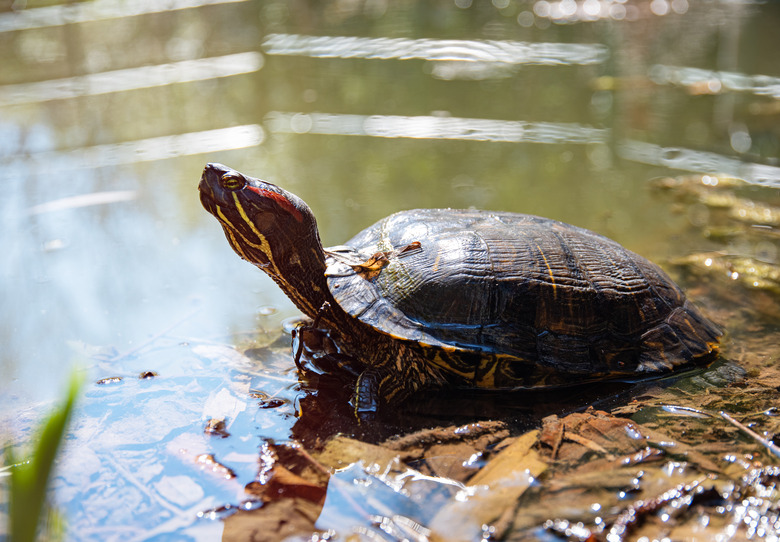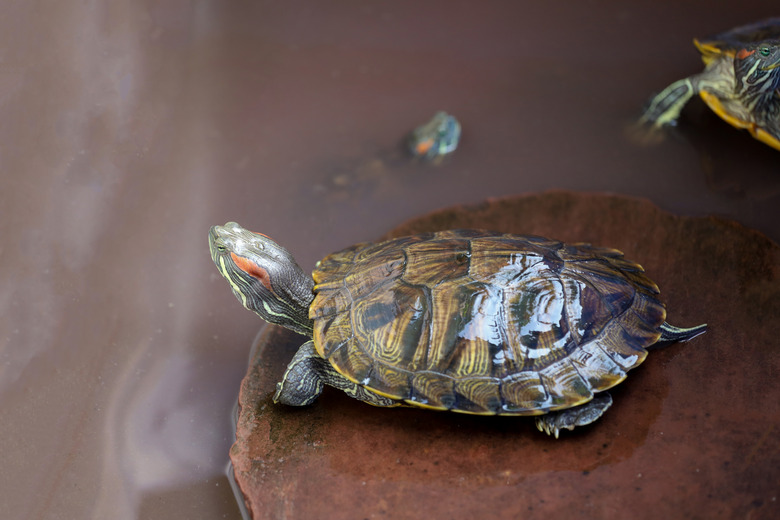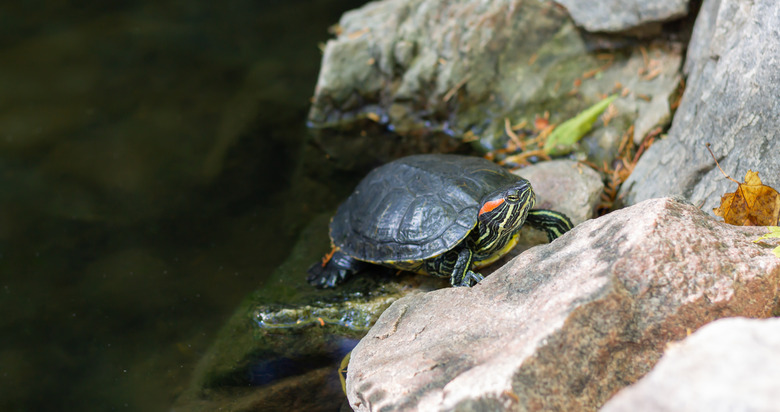Difference Between A Male & Female Young Red-Eared Slider
Is your red-eared slider male or female? Determining the gender of reptiles can be much trickier than sexing mammals. These animals carry most of their sexual characteristics inside their bodies. However, male and female red-eared sliders do have some visible differences between them. Once a young turtle reaches the correct size, it's possible to determine red-eared slider gender with some accuracy by measuring the size of tails, claws, and shells.
Red-eared slider size and claws
Red-eared slider size and claws
If you want to know whether your red-eared slider is male or female, start by looking at its size. Note, however, very young turtles usually cannot be sexed accurately, because they don't yet show major differences between male and female. A young turtle must be at least 4 inches long before accurate sexing is possible.
Once they are older, or at least longer than 4 inches long, female red-eared sliders are usually larger than males, but have a smaller, thinner tail and shorter front claws. Males have longer, thicker tails and visibly longer front claws than females.
Measuring claws and tails is one of the easiest ways to determine red-eared slider gender at a young age. At an older age, measure length: the female red-eared sliders can grow shells more than 10 inches long, while males rarely grow longer than 7 or 8 inches long.
Red-eared slider age
Red-eared slider age
There is no set age for young red-eared sliders to reach sexual maturity. Captive turtles often grow more quickly than wild ones and reach maturity faster. Males are likely to reach four inches long between the ages of two and four years old, while females of that age are often an inch or more longer.
Trying to sex these animals earlier rarely yields reliable results. Size of captive turtles doesn't always indicate age. Watch your young turtle's diet carefully. Overfed turtles can grow more quickly and reach sexual maturity faster than wild turtles or pets that receive normal diets.
Red-eared slider cloaca
Red-eared slider cloaca
All turtles, including young red-eared sliders, have a single opening, called the cloaca or vent, which serves both for excretion and reproduction. Observing the cloaca is a good way to determine the gender of young turtles. Male red-eared sliders have a much longer tail than females, and the cloaca is positioned lower on the tail. In females, the cloaca is close to the body, while males have a cloaca located almost at the tip of the tail.
Red-eared slider snout
Red-eared slider snout
Sexing red-eared sliders becomes easier as the turtles age. In older males, the nose and snout are longer, and the end of the plastron, the ventral part of the shell, is partially concave to provide stability during mating.
These features are present in young turtles, but are generally too subtle to notice. Owners who have trouble determining whether their turtles are male or female might have better results if they wait a few months, then try again.
Female mating behavior
Female mating behavior
After sexual maturity, female red-eared sliders might lay eggs or present laying behavior, even if males are not present. Turtles that are laying eat less and will likely be more active. For instance, digging is common, especially in cages with appropriate nesting materials such as peat moss or potting soil. Sometimes they will lay eggs in water. Males do not display this behavior.


